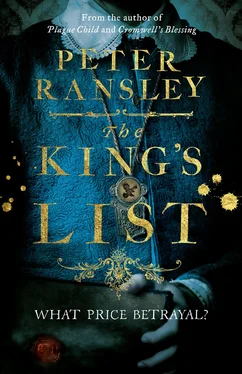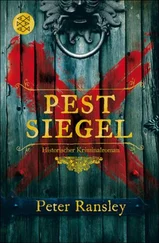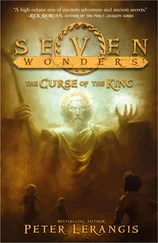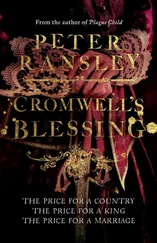It was late evening when I decoded the letter. I went from my study to return it to Anne. The door of Luke’s room was open as was that of the anteroom of Anne’s apartment. He often slipped in to see her, to agonise over the width of a pair of breeches, or the colour of a cloth. I could hear the murmur of her voice from the corridor and was raising my hand to knock when Luke spoke.
‘When I have the estate I will have a proper steward, not that rogue Scogman.’
Her reply was inaudible but I could guess she agreed with the sentiment. She had her own house steward at Highpoint, a correct and punctilious man. I went into the anteroom. Unlike the rest of the house, which was dark and gloomy, she had, in a short space of time, made her rooms bright with fresh paper and a few of her favourite pictures. There was no sign of her maid and I raised my hand to knock again.
‘Of course, Grandfather will have Highpoint first,’ Luke said.
She loathed Richard much more wholeheartedly than I did and once would have had him killed by Cromwell if I had not interceded, but her reply was chiding, indulgent. ‘Oh. Will he. Then what will happen to your father and me?’
‘Oh … don’t worry. I will protect you, Mother.’
It was banter. She did not take him seriously, but still I could not trust myself to speak. If I had gone in he would have thought I was spying on him, which, by that time, it was impossible to deny.
I returned to my study and picked up my father’s letter. Luke’s grandfather would have Highpoint first, would he? Again I wondered if my father was in contact with Luke, and picked up his letter.
Richard Stonehouse was a threat to the state. That was how John Thurloe, the Secretary of State, for whom I worked, regarded him. Throughout fifteen years of turmoil and change, whatever people thought of his methods, John Thurloe had kept a steady hand on the affairs of state. He had built an admired and feared network of contacts, spies and informers that made one ambassador say: ‘He has the secrets of Princes in his pocket.’ Not just princes. Nobles, gentlemen, politicians, merchants, lawyers, ministers: anyone of any consequence was recorded in papers at his offices in Whitehall. He was one of the few people with Cromwell when he died. Cromwell trusted him implicitly. So did I. I knew what he would say about my father – he had said it often enough.
‘Write to Amsterdam.’
In other words, have him killed by our agent there. I had always recoiled from it. Thurloe thought it was a sign of weakness, but it was not just that he was my father. What was the point? He was a pathetic figure with no real hope of his King returning. But I could not stand the thought of him poisoning my son’s mind.
I had much more to do but Luke’s words and Anne’s indulgence continued to irk me. I felt excluded in my own house. I had put Luke under house arrest but, in a curious way I did not fully understand, I felt I had imprisoned myself.
I flung down my pen and had a glass of sack while I shrugged into my shabby old Brandenburg coat. Anne would call a servant to put on a coat but I detested all that formality. A servant sprang up from the booth in reception, the gold embroidered falcon glittering on his cuffs. He was new – Anne had been dissatisfied with some of the staff – and for a moment I could not recall his name.
‘I am going to the club. Would you be good enough to tell Lady Stonehouse that I shall not be in for supper?’
No, I did not want the coach; nor the ostler to get my horse. I went down the steps into Queen Street, turning surreptitiously to put two fingers up to the austere stone falcon over the entrance. With a feeling of release I breathed in the stink of the streets, walking my legs back to life through Covent Garden towards Parliament. There, swathed in the mists from the river was New Palace Yard, a huge open space full of eating houses, taverns and coffee houses. Coffee had taken London by storm, almost overnight, like pantaloons and feathers in hats. It was in the Turk’s Head Coffee House that the Rota Club met.
It was a pretend Parliament. A republican debating society that anyone with eighteen pence could join and have a vote. Cromwell had purged Parliament, reducing it to a small number – the Rump – until even that had been dismissed. With historically a large Royalist majority he could never have governed. Yet he never reformed it. God would provide the answer. God never did, and there we were, crammed into the smoke-filled Turk’s Head a few steps from Westminster, the republican Parliament that might have been.
The eighteen pence included coffee and pipes of tobacco. I found the coffee foul, boiled thick as soup and bitter, but many sniffed appreciatively and were very knowing about different Turkish blends. It certainly kept people sober and the debate fierce. As novel as the coffee was the Balloting Box. The motion was put and every member dropped his ball in the Aye or the Noe section. That evening the question was whether a Minister should serve a fixed term only and it was decided he should, to avoid consolidation of power.
We streamed into the night, flasks of Dutch brandy coming out to take away the taste of the coffee, and the real business began. William Clarke, whom I used to dub ‘Mr Ink’ in our republican days, took me to one side. He was now rather grand and staid, being secretary to the Committee of Safety, the hotchpotch of army officers that ran the country.
‘Lambert won’t fight,’ he said, taking a pull from my flask. Lambert was the general who had put down the summer rebellion. He had gone north to subjugate another general, Monck, in charge of the Scottish army, who had refused to join the Committee of Safety, declaring it illegal. ‘His troops are not paid. Some of them are without boots.’
He slipped me a paper, containing army movements and committee minutes. It was old, thin stuff, some of it rehashed from what I had seen before. He read the disappointment in my face and took another drink from my flask.
‘What happened at the last meeting?’
He wiped the brandy from his lips. He looked ill and feverish. ‘I wasn’t there,’ he said. ‘I was excluded. How can I take the minutes of a meeting when I’m excluded?’ He addressed me as if I was personally responsible, almost immediately muttering, ‘I’m sorry, Tom. It used to be difficult to know who will be in charge tomorrow. Now I scarcely know who is in charge today.’
I laughed. ‘Don’t worry, Bill. This will be very useful.’
In other words, like Lucy, he would be paid. I ended the evening in a chop house with Sam Pepys.
We had both climbed out of the streets, his father having been a tailor. His patron, Lord Montague, was under suspicion of involvement in the summer rebellion and Pepys had lost his position as his secretary.
‘So I have nothing to do, which is bad, and no money to do it with, which is worse, unless Lord Montague is reprieved …?’
He looked at me hopefully. I concentrated on my mutton chop in pomegranate jelly. Montague was able, if a little headstrong, and I had put a case for him but John Thurloe was adamant. Montague would go to the Tower. When the Secretary of State made a decision it was final. Montague was finished. I complimented Pepys on his choice of eating house. Only a good chef could turn a tough old piece of mutton into such a rare delicacy.
He made a face at me and sighed. ‘Then I am done. I will have to while away my hours writing a diary.’
‘A diary?’
‘A record of each day. Big events. Plenty of those. There’s a new government every day. Small ones – the sort of things you and I get up to.’ He gave me a prodigious wink.
‘How are you going to sell it?’
‘Sell it?’ He looked shocked. ‘I’m writing it in shorthand. I could never sell it. My wife might read it.’
Читать дальше












